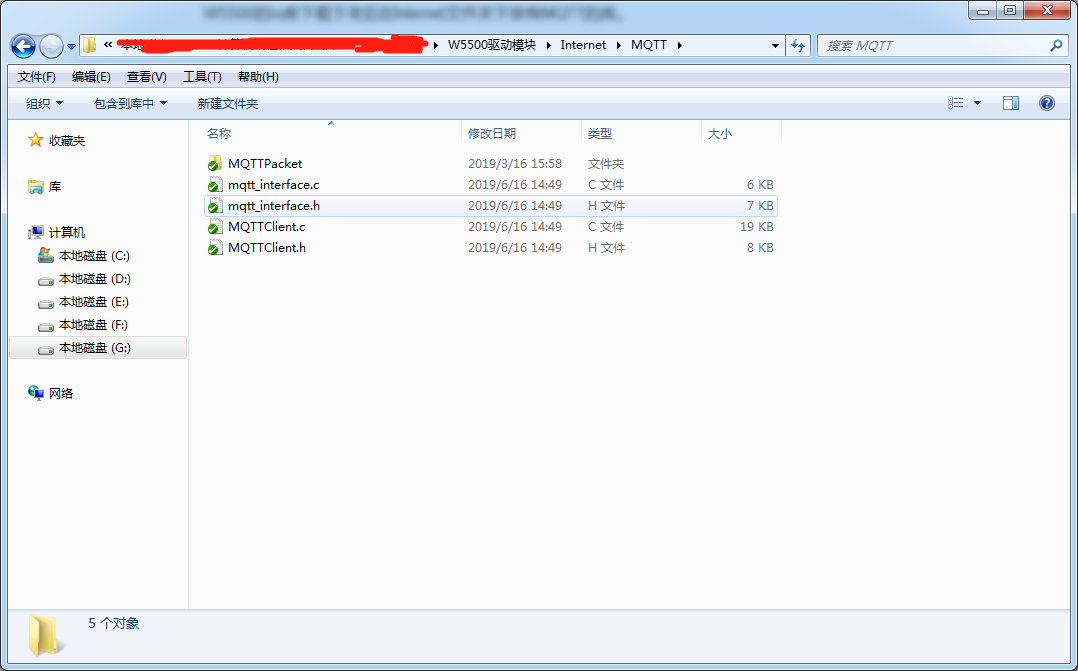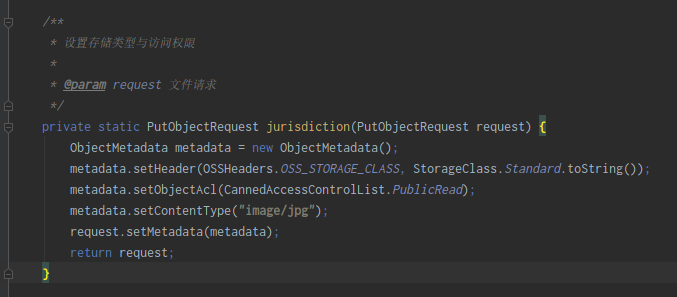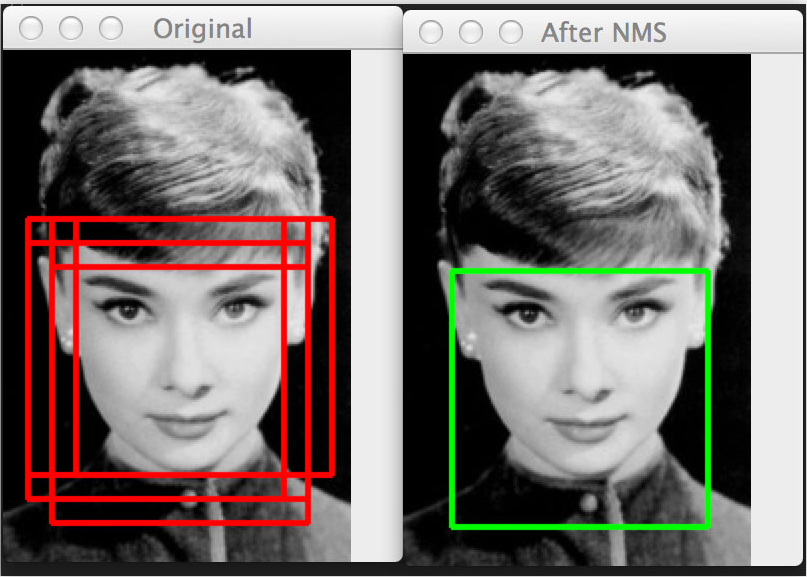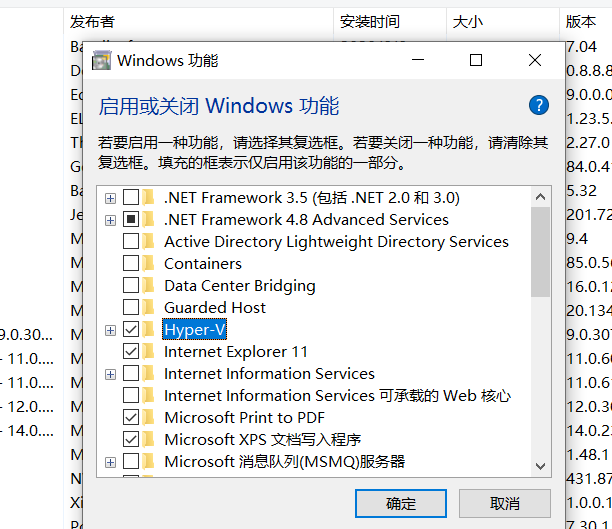[嵌入式开发模块]MQTT开源库Paho嵌入式C/C++版本的移植及使用(基于W5500 io库)
文章目录
- 前言
- Paho
- 接口文件
- mqtt_interface.h
- mqtt_interface.c
- 移植
- 定时器Timer类
- 网络Network类
- 使用
- 初始化相关实例
- 与MQTT Server创建TCP链接
- 设置MQTT链接选项并创建MQTT链接
- 订阅Topic
- 发布Topic
- 守护
- 断连
- 综合示例
前言
最近成功使用W5500实现了MQTT客户端,进行一个记录。
W5500的io库下载下来后在Internet文件夹下有MQTT文件夹。
里头差不多就长这个样子。
其中,mqtt_interface两个文件是移植用的接口文件。而其他的文件实际上就是Paho开源库的Embedded C/C++ 版本的文件。
Paho
Paho是MQTT的官方开源库,其有很多版本,各版本之间的特性比较如下:
可以看到,我们要讲的嵌入式版本(最后一行)是其中特性最少的;这很正常,受限于设备的能力,肯定要精简掉一些特性。注意,虽然这张图上把非阻塞API那一项勾上了,但实际上嵌入式版本只有阻塞式API,可能这里是个笔误。
在进一步研究之前,请先下载Embedded C的最新版库;即使你用的是W5500的io库,里头已经有相关文件了,也最好更新成最新版的。稍微有点差别。
https://github.com/eclipse/paho.mqtt.embedded-c
点进去上面的链接,下载下来一堆文件,我们只需要MQTTPacket/src这个文件夹以及MQTTClient-C/src里的MQTTClient.h和MQTTClient.c。
记得在MQTTClient.h里略做修改。在
#include “MQTTPacket.h”
后面加上一行:
#include “mqtt_interface.h”
网上对C和C++版本的讲解有很多,也很全面,但是对Embedded版本的讲解却几乎没有。下面由我进行讲解。
接口文件
方便起见,我们这样:先添加进去以下两个文件,这两文件是在我的环境下移植好的,但是在你的环境下会有一点点小错误的;但是不打紧,之后我们对其进行修改以完成移植。
mqtt_interface.h
//*****************************************************************************//! \file mqtt_interface.h//! \brief Paho MQTT to WIZnet Chip interface Header file.//! \details The process of porting an interface to use paho MQTT.//! \version 1.0.0//! \date 2016/12/06//! \par Revision history//! <2016/12/06> 1st Release//!//! \author Peter Bang & Justin Kim//! \copyright//!//! Copyright (c) 2016, WIZnet Co., LTD.//! All rights reserved.//!//! Redistribution and use in source and binary forms, with or without//! modification, are permitted provided that the following conditions//! are met://!//! * Redistributions of source code must retain the above copyright//! notice, this list of conditions and the following disclaimer.//! * Redistributions in binary form must reproduce the above copyright//! notice, this list of conditions and the following disclaimer in the//! documentation and/or other materials provided with the distribution.//! * Neither the name of the <ORGANIZATION> nor the names of its//! contributors may be used to endorse or promote products derived//! from this software without specific prior written permission.//!//! THIS SOFTWARE IS PROVIDED BY THE COPYRIGHT HOLDERS AND CONTRIBUTORS "AS IS"//! AND ANY EXPRESS OR IMPLIED WARRANTIES, INCLUDING, BUT NOT LIMITED TO, THE//! IMPLIED WARRANTIES OF MERCHANTABILITY AND FITNESS FOR A PARTICULAR PURPOSE//! ARE DISCLAIMED. IN NO EVENT SHALL THE COPYRIGHT OWNER OR CONTRIBUTORS BE//! LIABLE FOR ANY DIRECT, INDIRECT, INCIDENTAL, SPECIAL, EXEMPLARY, OR//! CONSEQUENTIAL DAMAGES (INCLUDING, BUT NOT LIMITED TO, PROCUREMENT OF//! SUBSTITUTE GOODS OR SERVICES; LOSS OF USE, DATA, OR PROFITS; OR BUSINESS//! INTERRUPTION) HOWEVER CAUSED AND ON ANY THEORY OF LIABILITY, WHETHER IN//! CONTRACT, STRICT LIABILITY, OR TORT (INCLUDING NEGLIGENCE OR OTHERWISE)//! ARISING IN ANY WAY OUT OF THE USE OF THIS SOFTWARE, EVEN IF ADVISED OF//! THE POSSIBILITY OF SUCH DAMAGE.////*****************************************************************************/* MQTT subscribe Example.... W5500 + STM32F103(IoT board)//Include: Board configuration#include "IoTEVB.h"//Include: MCU peripheral Library#include "stm32f10x_rcc.h"#include "stm32f10x.h"//Include: W5500 iolibrary#include "w5500.h"#include "wizchip_conf.h"#include "misc.h"//Include: Internet iolibrary#include "MQTTClient.h"//Include: MCU Specific W5500 driver#include "W5500HardwareDriver.h"//Include: Standard IO Library#include <stdio.h>//Socket number defines#define TCP_SOCKET 0//Receive Buffer Size define#define BUFFER_SIZE 2048//Global variablesunsigned char targetIP[4] = {}; // mqtt server IPunsigned int targetPort = 1883; // mqtt server portuint8_t mac_address[6] = {};wiz_NetInfo gWIZNETINFO = {.mac = {}, //user MAC.ip = {}, //user IP.sn = {},.gw = {},.dns = {},.dhcp = NETINFO_STATIC};unsigned char tempBuffer[BUFFER_SIZE] = {};struct opts_struct{char* clientid;int nodelimiter;char* delimiter;enum QoS qos;char* username;char* password;char* host;int port;int showtopics;} opts ={(char*)"stdout-subscriber", 0, (char*)"\n", QOS0, NULL, NULL, targetIP, targetPort, 0 };// @brief messageArrived callback functionvoid messageArrived(MessageData* md){unsigned char testbuffer[100];MQTTMessage* message = md->message;if (opts.showtopics){memcpy(testbuffer,(char*)message->payload,(int)message->payloadlen);*(testbuffer + (int)message->payloadlen + 1) = "\n";printf("%s\r\n",testbuffer);}if (opts.nodelimiter)printf("%.*s", (int)message->payloadlen, (char*)message->payload);elseprintf("%.*s%s", (int)message->payloadlen, (char*)message->payload, opts.delimiter);}// @brief 1 millisecond Tick Timer settingvoid NVIC_configuration(void){NVIC_InitTypeDef NVIC_InitStructure;SysTick_CLKSourceConfig(SysTick_CLKSource_HCLK);SysTick_Config(72000);NVIC_InitStructure.NVIC_IRQChannel = SysTick_IRQn;NVIC_InitStructure.NVIC_IRQChannelPreemptionPriority = 0; // Highest priorityNVIC_InitStructure.NVIC_IRQChannelSubPriority = 0;NVIC_InitStructure.NVIC_IRQChannelCmd = ENABLE;NVIC_Init(&NVIC_InitStructure);}// @brief 1 millisecond Tick Timer Handler settingvoid SysTick_Handler(void){MilliTimer_Handler();}int main(void){led_ctrl led1,led2;int i;int rc = 0;unsigned char buf[100];//Usart initialization for Debug.USART1Initialze();printf("USART initialized.\n\r");I2C1Initialize();printf("I2C initialized.\n\r");MACEEP_Read(mac_address,0xfa,6);printf("Mac address\n\r");for(i = 0 ; i < 6 ; i++){printf("%02x ",mac_address[i]);}printf("\n\r");//LED initialization.led_initialize();led1 = led2 = ON;led2Ctrl(led2);led1Ctrl(led1);//W5500 initialization.W5500HardwareInitilize();printf("W5500 hardware interface initialized.\n\r");W5500Initialze();printf("W5500 IC initialized.\n\r");//Set network informationswizchip_setnetinfo(&gWIZNETINFO);setSHAR(mac_address);print_network_information();Network n;MQTTClient c;NewNetwork(&n, TCP_SOCKET);ConnectNetwork(&n, targetIP, targetPort);MQTTClientInit(&c,&n,1000,buf,100,tempBuffer,2048);MQTTPacket_connectData data = MQTTPacket_connectData_initializer;data.willFlag = 0;data.MQTTVersion = 3;data.clientID.cstring = opts.clientid;data.username.cstring = opts.username;data.password.cstring = opts.password;data.keepAliveInterval = 60;data.cleansession = 1;rc = MQTTConnect(&c, &data);printf("Connected %d\r\n", rc);opts.showtopics = 1;printf("Subscribing to %s\r\n", "hello/wiznet");rc = MQTTSubscribe(&c, "hello/wiznet", opts.qos, messageArrived);printf("Subscribed %d\r\n", rc);while(1){MQTTYield(&c, data.keepAliveInterval);}}*/#ifndef __MQTT_INTERFACE_H_#define __MQTT_INTERFACE_H_/** @brief MQTT MilliTimer handler* @note MUST BE register to your system 1m Tick timer handler*/void MilliTimer_Handler(void);/** @brief Timer structure*/typedef struct Timer Timer;struct Timer {unsigned long systick_period;unsigned long end_time;};/** @brief Network structure*/typedef struct Network Network;struct Network{int my_socket;int (*mqttread) (Network*, unsigned char*, int, int);int (*mqttwrite) (Network*, unsigned char*, int, int);void (*disconnect) (Network*);};/** @brief Timer function*/void TimerInit(Timer*);char TimerIsExpired(Timer*);void TimerCountdownMS(Timer*, unsigned int);void TimerCountdown(Timer*, unsigned int);int TimerLeftMS(Timer*);/** @brief Network interface porting*/int w5x00_read(Network*, unsigned char*, int, int);int w5x00_write(Network*, unsigned char*, int, int);void w5x00_disconnect(Network*);void NewNetwork(Network* n, int sn);int ConnectNetwork(Network*, char*, int);#endif //__MQTT_INTERFACE_H_
mqtt_interface.c
//*****************************************************************************//! \file mqtt_interface.c//! \brief Paho MQTT to WIZnet Chip interface implement file.//! \details The process of porting an interface to use paho MQTT.//! \version 1.0.0//! \date 2016/12/06//! \par Revision history//! <2016/12/06> 1st Release//!//! \author Peter Bang & Justin Kim//! \copyright//!//! Copyright (c) 2016, WIZnet Co., LTD.//! All rights reserved.//!//! Redistribution and use in source and binary forms, with or without//! modification, are permitted provided that the following conditions//! are met://!//! * Redistributions of source code must retain the above copyright//! notice, this list of conditions and the following disclaimer.//! * Redistributions in binary form must reproduce the above copyright//! notice, this list of conditions and the following disclaimer in the//! documentation and/or other materials provided with the distribution.//! * Neither the name of the <ORGANIZATION> nor the names of its//! contributors may be used to endorse or promote products derived//! from this software without specific prior written permission.//!//! THIS SOFTWARE IS PROVIDED BY THE COPYRIGHT HOLDERS AND CONTRIBUTORS "AS IS"//! AND ANY EXPRESS OR IMPLIED WARRANTIES, INCLUDING, BUT NOT LIMITED TO, THE//! IMPLIED WARRANTIES OF MERCHANTABILITY AND FITNESS FOR A PARTICULAR PURPOSE//! ARE DISCLAIMED. IN NO EVENT SHALL THE COPYRIGHT OWNER OR CONTRIBUTORS BE//! LIABLE FOR ANY DIRECT, INDIRECT, INCIDENTAL, SPECIAL, EXEMPLARY, OR//! CONSEQUENTIAL DAMAGES (INCLUDING, BUT NOT LIMITED TO, PROCUREMENT OF//! SUBSTITUTE GOODS OR SERVICES; LOSS OF USE, DATA, OR PROFITS; OR BUSINESS//! INTERRUPTION) HOWEVER CAUSED AND ON ANY THEORY OF LIABILITY, WHETHER IN//! CONTRACT, STRICT LIABILITY, OR TORT (INCLUDING NEGLIGENCE OR OTHERWISE)//! ARISING IN ANY WAY OUT OF THE USE OF THIS SOFTWARE, EVEN IF ADVISED OF//! THE POSSIBILITY OF SUCH DAMAGE.////*****************************************************************************#include "mqtt_interface.h"#include "socket.h"#include "MyOS.h"unsigned long MilliTimer;/** @brief MQTT MilliTimer handler* @note MUST BE register to your system 1m Tick timer handler.*/void MilliTimer_Handler(void) {MilliTimer++;}/** @brief Timer Initialize* @param timer : pointer to a Timer structure* that contains the configuration information for the Timer.*/void TimerInit(Timer* timer) {timer->end_time = 0;}/** @brief expired Timer* @param timer : pointer to a Timer structure* that contains the configuration information for the Timer.*/char TimerIsExpired(Timer* timer) {long left = timer->end_time - MilliTimer;return (left < 0);}/** @brief Countdown millisecond Timer* @param timer : pointer to a Timer structure* that contains the configuration information for the Timer.* timeout : setting timeout millisecond.*/void TimerCountdownMS(Timer* timer, unsigned int timeout) {timer->end_time = MilliTimer + timeout;}/** @brief Countdown second Timer* @param timer : pointer to a Timer structure* that contains the configuration information for the Timer.* timeout : setting timeout millisecond.*/void TimerCountdown(Timer* timer, unsigned int timeout) {timer->end_time = MilliTimer + (timeout * 1000);}/** @brief left millisecond Timer* @param timer : pointer to a Timer structure* that contains the configuration information for the Timer.*/int TimerLeftMS(Timer* timer) {long left = timer->end_time - MilliTimer;return (left < 0) ? 0 : left;}/** @brief New network setting* @param n : pointer to a Network structure* that contains the configuration information for the Network.* sn : socket number where x can be (0..7).* @retval None*/void NewNetwork(Network* n, int sn) {n->my_socket = sn;n->mqttread = w5x00_read;n->mqttwrite = w5x00_write;n->disconnect = w5x00_disconnect;}/** @brief read function* @param n : pointer to a Network structure* that contains the configuration information for the Network.* buffer : pointer to a read buffer.* len : buffer length.*/int w5x00_read(Network* n, unsigned char* buffer, int len, int timeout_ms){Timer tmr;TimerInit(&tmr);TimerCountdownMS(&tmr, timeout_ms);while(!TimerIsExpired(&tmr)){if(getSn_SR(n->my_socket) != SOCK_ESTABLISHED)return -1;if(getSn_RX_RSR(n->my_socket)>0)return recv(n->my_socket, buffer, len);MyOS_DlyHMSM(0,0,0,30);}return 0;}/** @brief write function* @param n : pointer to a Network structure* that contains the configuration information for the Network.* buffer : pointer to a read buffer.* len : buffer length.*/int w5x00_write(Network* n, unsigned char* buffer, int len, int timeout_ms){return send(n->my_socket, buffer, len);}/** @brief disconnect function* @param n : pointer to a Network structure* that contains the configuration information for the Network.*/void w5x00_disconnect(Network* n){disconnect(n->my_socket);}/** @brief connect network function* @param n : pointer to a Network structure* that contains the configuration information for the Network.* ip : server iP.* port : server port.*/int ConnectNetwork(Network* n, char* ip, int port){uint8_t myport = 12345;socket(n->my_socket,Sn_MR_TCP,myport,0);connect(n->my_socket,ip,port);}
以上两个文件mqtt_interface.h和mqtt_interface.c不完全是io库自带的那个,是基于我的环境进行了一定的修改后移植完成后的版本。原来的版本有一些根本性的问题,所以不要嫌麻烦,动动小手指 唱跳rap篮球+cv 一下,先替换掉原来的文件。
移植
下面我们来看看怎么把这个文件移植到你的嵌入式系统中。移植的主要工作就是为MQTT库实现一个定时器Timer类以及一个网络Network类。
定时器Timer类
打开MQTTClient.h可以看到库对Timer类的要求:
/* The Timer structure must be defined in the platform specific header,* and have the following functions to operate on it. */extern void TimerInit(Timer*);extern char TimerIsExpired(Timer*);extern void TimerCountdownMS(Timer*, unsigned int);extern void TimerCountdown(Timer*, unsigned int);extern int TimerLeftMS(Timer*);
这几个接口的作用分别是:
TimerInit:初始化一个Timer实例
TimerIsExpired:返回定时器是否超时
TimerCountdownMS:设定过多少ms超时
TimerCountdown:设定过多少s超时
TimerLeftMS:返回还剩多少ms超时
上面的接口文件已经实现了这些接口,其原理是内部用了一个计时用的全局变量,每1ms应该加1,而Timer内部成员则保存计时的起始时间和超时时间。通过内部变量与Timer内部成员的比较,算出是否超时等。这个实现与操作系统等无关,所以应该可以直接用。
但是要记得实现每1ms调用一次以下接口。比如用一个计时中断。
/** @brief MQTT MilliTimer handler* @note MUST BE register to your system 1m Tick timer handler*/void MilliTimer_Handler(void);
网络Network类
同样在MQTTClient.h中可以看到库对Network类的要求:
/* The Platform specific header must define the Network and Timer structures and functions* which operate on them.*typedef struct Network{int (*mqttread)(Network*, unsigned char* read_buffer, int, int);int (*mqttwrite)(Network*, unsigned char* send_buffer, int, int);} Network;*/
简单来说就是MQTT库将网络接口抽象为了Network类。我要好好夸夸这个接口设计,它非常成功地将MQTT实现与网络的具体实现解耦了。网络相关的信息由用户封装到自己定义的Network类之中,库只管在需要的时候回调Network类的几个方法来实现网络功能。如果你用纯C做过面向对象编程的话应该会比较好理解。
我们来看看Network结构体在这个移植版本中的定义:
typedef struct Network Network;struct Network{int my_socket;int (*mqttread) (Network*, unsigned char*, int, int);int (*mqttwrite) (Network*, unsigned char*, int, int);void (*disconnect) (Network*);};
可以看到它在要求的结构体上还进行了一定的扩展。
第一个成员my_socket用于存储当前TCP链接的socket号,对应于io库中各个接口的第一个参数。
后面三个则定义了网络的读、写以及断连接口。MQTT库在内部会调用Network实例的对应接口,并把Network实例自身作为第一个参数传入,以实现对应的功能,而接口则可以通过实例的第一个成员来区分要操作的是哪一个socket。
于是我们可以看到NewNetwork的实现是这样的:
void NewNetwork(Network* n, int sn) {n->my_socket = sn;n->mqttread = w5x00_read;n->mqttwrite = w5x00_write;n->disconnect = w5x00_disconnect;}
只是简单的将实例的成员和函数接口进行赋值。这个应该不需要你动。
于是接下来我们就要进行移植的最主要工作—实现w5x00_read、w5x00_write和(其实可以不实现的)w5x00_disconnect了。
我们来看下它们的实现:
/** @brief read function* @param n : pointer to a Network structure* that contains the configuration information for the Network.* buffer : pointer to a read buffer.* len : buffer length.*/int w5x00_read(Network* n, unsigned char* buffer, int len, int timeout_ms){Timer tmr;TimerInit(&tmr);TimerCountdownMS(&tmr, timeout_ms);while(!TimerIsExpired(&tmr)){if(getSn_SR(n->my_socket) != SOCK_ESTABLISHED)return -1;if(getSn_RX_RSR(n->my_socket)>0)return recv(n->my_socket, buffer, len);MyOS_DlyHMSM(0,0,0,30);}return 0;}/** @brief write function* @param n : pointer to a Network structure* that contains the configuration information for the Network.* buffer : pointer to a read buffer.* len : buffer length.*/int w5x00_write(Network* n, unsigned char* buffer, int len, int timeout_ms){return send(n->my_socket, buffer, len);}/** @brief disconnect function* @param n : pointer to a Network structure* that contains the configuration information for the Network.*/void w5x00_disconnect(Network* n){disconnect(n->my_socket);}
应该还蛮好理解的,就是要对Network n进行操作,从网络往缓冲区buffer中读入最多len个字符或写buffer中的len个字符到网络中,超时时间timeout_ms微妙。主要就是实现到W5500 io库对应接口的一个映射关系。唯一会出问题的估计就是read函数里头那个MyOS_DlyHMSM,这是我对操作系统的抽象,实现线程sleep的功能,以避免阻塞操作抢占太多系统资源,你应该根据自己的操作系统进行修改。
还有一个ConnectNetwork就不细讲了。
上面的实现默认你用的是W5500的io库,如果不是,可能需要照着进行一定的修改。
使用
使用这个嵌入式版本的MQTT Client有以下几个步骤:
初始化相关实例
static Network _mqttNetwork;static MQTTClient _mqttClient = DefaultClient;NewNetwork(&_mqttNetwork, MQTT_SOCKET);MQTTClientInit(&_mqttClient,&_mqttNetwork,3000,_mqttSendBuf,sizeof(_mqttSendBuf),_mqttRecvBuf,sizeof(_mqttRecvBuf));
MQTTClientInit的第三个参数是命令的超时时间(ms),剩下几个参数是发送及接收缓冲区。
与MQTT Server创建TCP链接
这一步与MQTT库无关,就是使用自己的网络栈创建一条TCP链接,可以使用Network类的方法:
ConnectNetwork(&_mqttNetwork, _serverIP, _serverPort);
设置MQTT链接选项并创建MQTT链接
创建好TCP链接后就要和MQTT服务器创建MQTT的链接了,不然相关功能都无法使用。
首先我们要设置链接选项:
static MQTTPacket_connectData _mqttConnData = MQTTPacket_connectData_initializer;_mqttConnData.clientID.cstring = _devName; // 设置客户端的名字_mqttConnData.cleansession = 1; // 清会话// 如不使用用户名密码,直接注释下面即可_mqttConnData.username.cstring = "用户名";_mqttConnData.password.cstring = "密码";
MQTT有一个遗嘱功能可以在这里设置,如设置:
_mqttConnData.willFlag = TRUE; // 启用遗嘱_mqttConnData.will.topicName.cstring = "feeldead"; // 设置遗嘱的topic名_mqttConnData.will.qos = QOS1; // 遗嘱的QOS_mqttConnData.will.message.cstring = "我断连了!"; // 遗嘱的内容
这样,当服务器检测到客户端异常断连的话,就会发送遗嘱,这样所有订阅这个主题的客户端就都能知道这个设备掉线了。当然,如果是主动发出断连请求后断掉的话就不会发遗嘱了。
设置好连接选项后就可以调用MQTTConnect来创建MQTT连接了
MQTTConnect(&_mqttClient, &_mqttConnData);
成功则返回 SUCCESS。
订阅Topic
建立连接成功后,可以订阅感兴趣的Topic:
MQTTSubscribe(&_mqttClient, "topicFilter", QOS1, messageArrived);
成功则返回 SUCCESS。最后一个选项用于注册对应Topic的处理函数,原型如下:
void messageArrived(MessageData* md);
发布Topic
建立连接成功后,可以发布Topic:
static char _sData[] = "10C";static MQTTMessage _sensorData;_sensorData.qos = QOS0;_sensorData.retained = 0; // 是否retained,如是,新发起订阅的客户端会收到最近的一个消息_sensorData.id = 30; // 消息id 只需要指定初始的,后面每次会自增_sensorData.payload = _sData;_sensorData.payloadlen = sizeof(_sData) - 1;MQTTPublish(&_mqttClient, "topicName", &_sensorData);
成功则返回 SUCCESS。
守护
建立连接成功后,需要有进程完成例行的通信和接收消息等任务,这是通过调用MQTTYield来阻塞完成的:
MQTTYield(&_mqttClient, 3000);
第二个参数代表这次要守护多久(ms);
如返回SUCCESS, 说明这一次的守护成功;如失败,可能你得考虑重新建立连接。
断连
如需断开连接,先调用MQTTDisconnect:
MQTTDisconnect(&_mqttClient);
然后断开TCP链接。
综合示例
以下示例中的Task主动连接192.168.1.16:1883上的MQTT服务器。
设置遗嘱的TopicName为feeldead,QOS1,消息为自己的设备名。
然后以QOS1订阅主题s/temp,每次收到这个主题的消息时对相关信息进行打印。
通过设置_mqttKeepConn为FALSE来主动断开连接。
如需要发布消息时如上调用MQTTPublish(&_mqttClient, “topicName”, &_sensorData);来发布。
已略去其他关系不是很大的代码。
#include "MQTTClient.h"……static const char _devName[] = "device1";static Network _mqttNetwork;static MQTTClient _mqttClient = DefaultClient;static MQTTPacket_connectData _mqttConnData = MQTTPacket_connectData_initializer;static uint8_t _mqttSendBuf[100];static uint8_t _mqttRecvBuf[100];static uint8_t _mqttHost[4] = {192, 168, 1, 16};static uint16_t _mqttPort = 1883;static const char _sData[] = "34.12,43,1";static BOOL _mqttKeepConn = TRUE;static MQTTMessage _sensorData = {QOS0,0,0,1,_sData,sizeof(_sData) - 1,};static void _printfMessage(MessageData* md){char *buf = (char *)md->message->payload;size_t i;int index = 0;printf("Topic %.*s\n", md->topicName->lenstring.len, md->topicName->lenstring.data);printf("QoS: %d\r\nRetained: %d\r\nDup: %d\r\nID: %u\r\n",(int)md->message->qos,(int)md->message->retained,(int)md->message->dup,md->message->id);printf("Payload: %.*s\n", md->message->payloadlen, (char *)md->message->payload);}void messageArrived(MessageData* md){_printfMessage(md);}static void MqttSubTask(void *p_arg){int rc;(void)p_arg;_mqttConnData.clientID.cstring = _devName;_mqttConnData.cleansession = 1;_mqttConnData.willFlag = TRUE;_mqttConnData.will.topicName.cstring = "feeldead";_mqttConnData.will.qos = QOS1;_mqttConnData.will.message.cstring = _devName;NewNetwork(&_mqttNetwork, MQTT_SOCKET);MQTTClientInit(&_mqttClient,&_mqttNetwork,3000,_mqttSendBuf,sizeof(_mqttSendBuf),_mqttRecvBuf,sizeof(_mqttRecvBuf));for(;;){(void)OSTimeDlyHMSM(0,0,10,0);if(!_mqttKeepConn || !Network_Ready())continue;if(socket(MQTT_SOCKET,Sn_MR_TCP,0 ,0x00) == MQTT_SOCKET){(void)printf("MQTTclient: socket inited.\r\n");}else{(void)printf("MQTTclient: socket init fail.\r\n");continue;}if(connect(MQTT_SOCKET, _mqttHost, _mqttPort) == SOCK_OK){(void)printf("MQTTclient: tcp connect bulid.\r\n");}else{(void)printf("MQTTclient: connect fail.\r\n");continue;}(void)printf("MQTTclient: try connect server.\r\n");if((rc = MQTTConnect(&_mqttClient, &_mqttConnData)) == SUCCESS){(void)printf("MQTTclient: connect server success.\r\n");}else{(void)printf("MQTTclient: connect server fail,%d.\r\n", rc);continue;}printf("MQTTclient: Subscribing to %s, Qos: %d\r\n", "s/+/temp", QOS1);rc = MQTTSubscribe(&_mqttClient, "s/temp", QOS1, messageArrived);if(rc != SUCCESS)printf("MQTTclient: Subscribed %d\r\n", rc);while(1){if((rc = MQTTYield(&_mqttClient, 3000)) != SUCCESS){printf("MQTTclient: Yield fail %d\r\n", rc);break;}if(!_mqttKeepConn){MQTTDisconnect(&_mqttClient);disconnect(MQTT_SOCKET);close(MQTT_SOCKET);break;}}}}



































还没有评论,来说两句吧...